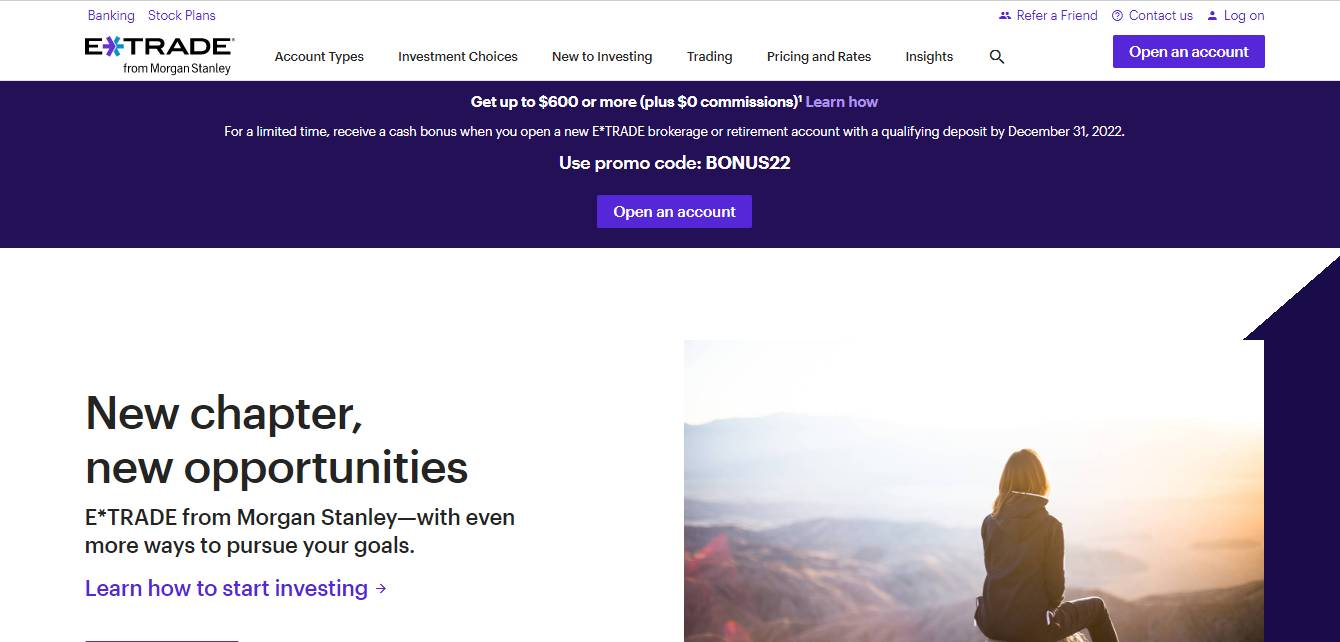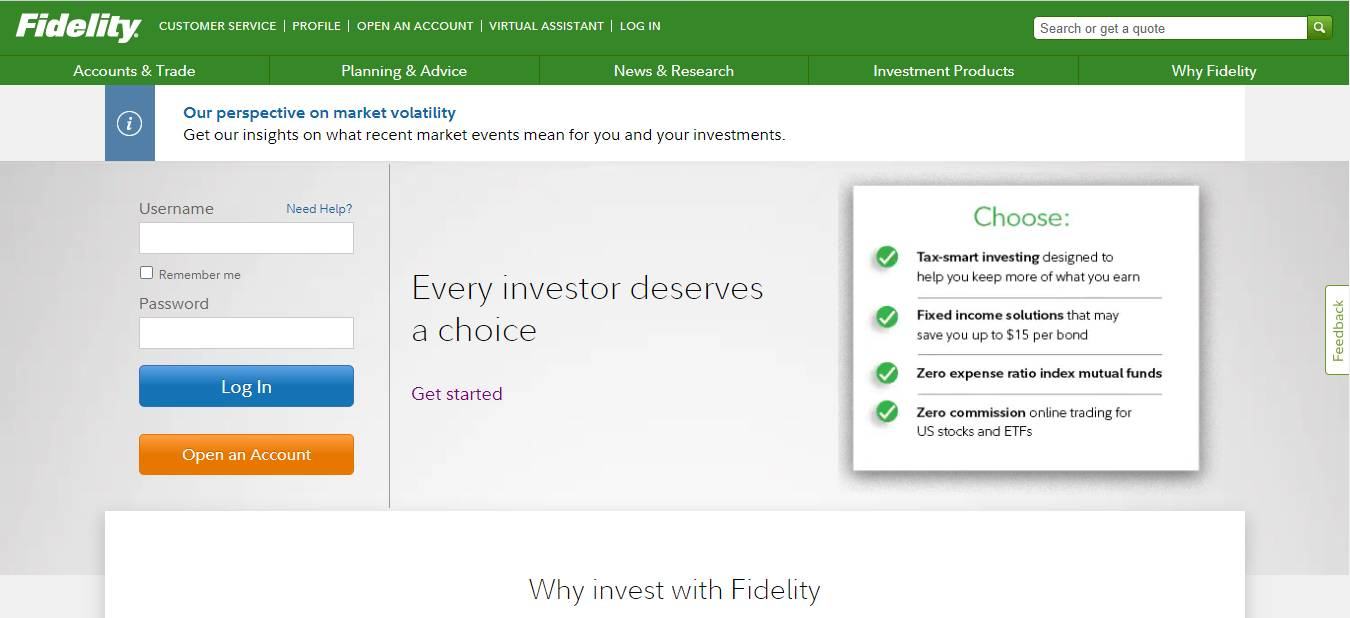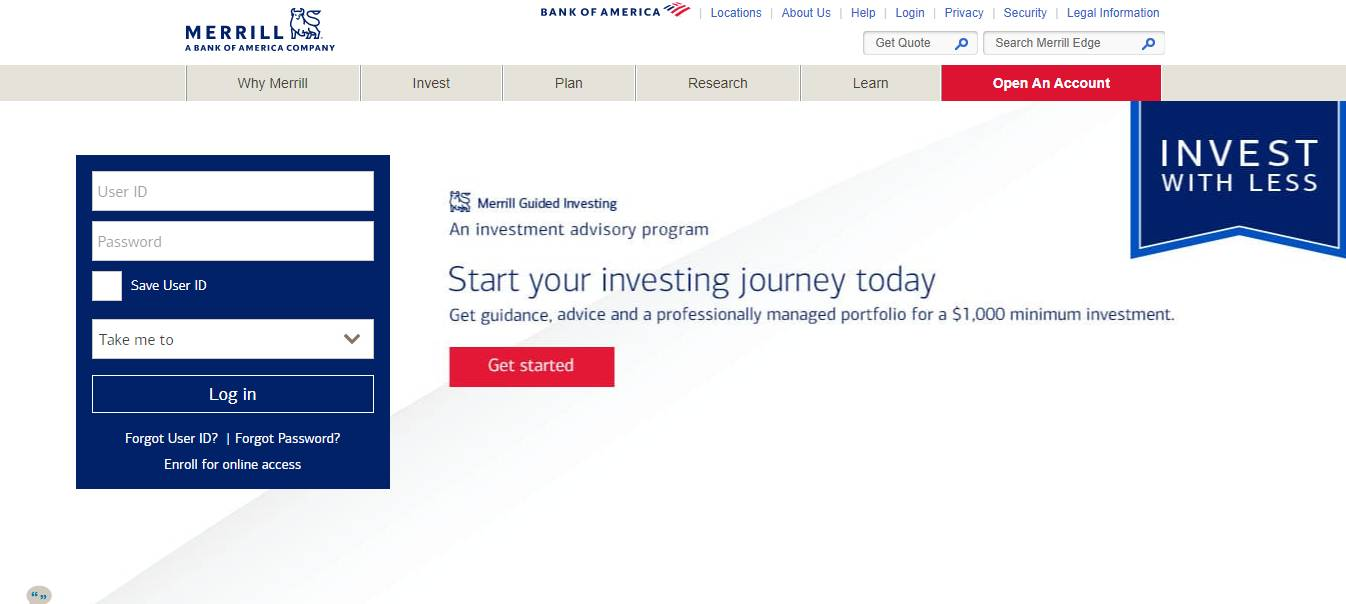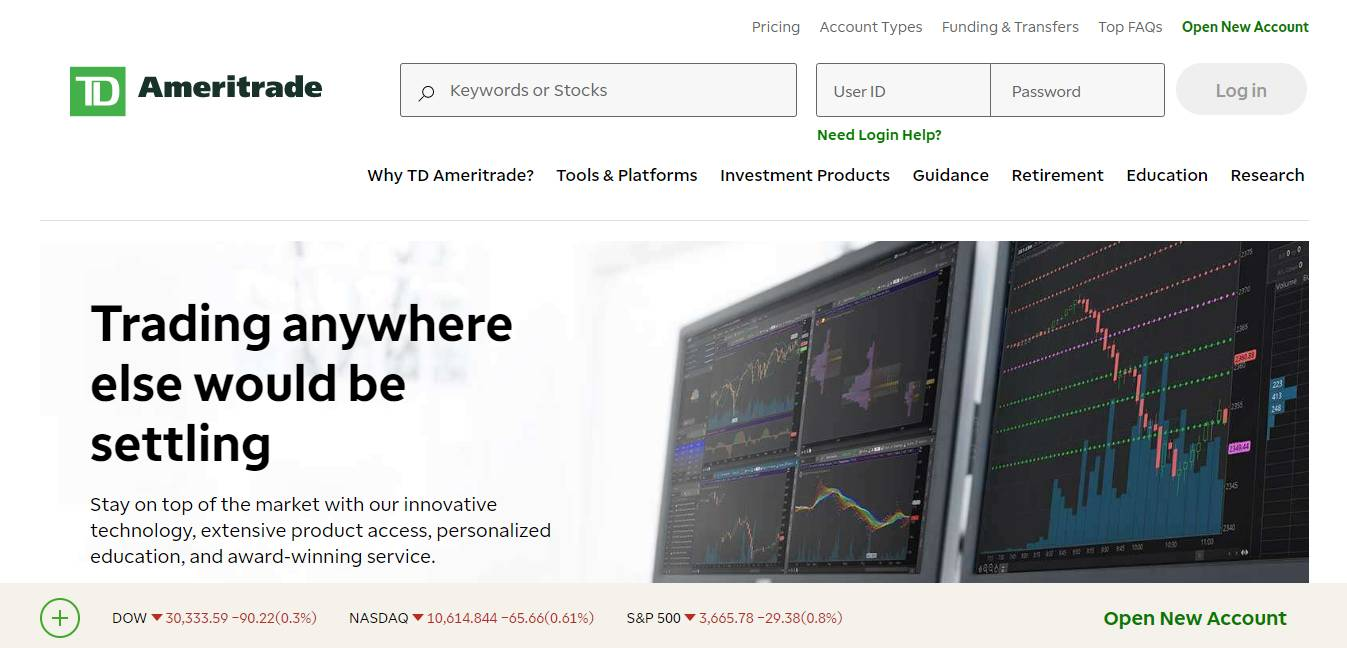Investing can be a great way to grow your money, but it can be confusing and overwhelming for beginner investors. There are a lot of different terms and concepts to learn, and it can be hard to know where to start stock trading. Choosing a brokerage account is one of your most important decisions as an investor. A taxable brokerage account is where you’ll buy and sell stocks, bonds, and other investments.
There are a lot of different brokerage accounts out there on stock market, so it’s essential to choose one that’s right for you. This article will overview beginner investors’ five best brokerage accounts in 2022 to help you buy the best stocks in the market. Read What Is a Brokerage Account and How Can It Help You Achieve Your Financial Goals?
What is an Online Stock Broker?
In simple words, an online stock broker is an online platform that allows individuals and institutions to buy, sell, and trade stocks. These online platforms are also called investment portals or trading platforms. Most of these online trading platforms provide their customers with research tools, real-time quotes, market data analysis, portfolio management tools, etc.
There are three types of the online broker:
- Full-service
- Discount brokers
- Robo-advisers.
Full-service brokers offer their clients a wide range of services, while discount/no-frills brokers charge fewer fees but provide fewer features than full-service ones. Robo-advisers are computer-generated investment platforms that provide automated portfolio management services according to the user’s risk tolerance and investment goals.
What Do You Need for a Brokerage Account?
The following information is needed to open a brokerage account:
- Your name
- Telephone number
- Social security number
- Date of birth
- Email address
- Employment status/occupation
- Driver’s license or passport information
- Net worth
- Annual income
You may also need to make some decisions when opening your account, such as:
Authorization: The decision-making authority for your account may be transferred to another person (your spouse, say) if you provide written legal authorization.
Risk tolerance: Some best online brokers may ask you about your financial goals. Investment strategies can be designed to preserve capital, earn income, or grow. It describes how much money an investor will invest in riskier stocks or a single stock.
Cash management: Interests or dividends may sit in your broker account awaiting investment. The cash you get may allow you to do something. A bank account, mutual funds, or leaving your funds untouched are all options offered by most online stock brokers.
Fees charged by most online brokers include commissions and the maintenance fee for the account. Occasionally, brokers charge inactivity fees if you haven’t traded, account closing fees, the transfer of funds may cost a small percentage, account closing fees, and bank account transfers may incur a fee. This guide contains a variety of low-fee and commission brokerage accounts for beginners.
How to pick the best stock broker
It would help to consider your needs when choosing an online brokerage account. The following are some things you may want to consider:
- A full-featured online trading platform may not be necessary if you intend to buy and hold stocks.
- Mutual fund brokers typically have low or no commissions, so you should look for one if your primary goal is to purchase mutual funds.
- A broker without a minimum investment requirement is probably the right choice for new investors since you only want to invest a few hundred dollars first.
You should compare each stock broker’s fees if you intend to trade bonds or stock options or make stock trades over the phone instead of online.
Best Online Brokerage Account For Beginner Investors 2022
Robinhood

Robinhood is best for:
- Mobile app users.
- Individual taxable brokerage accounts.
- Margin accounts.
The Robinhood platform was founded in 2013. It allows users to trade stocks without paying fees – too quickly. Investment accounts with tax advantages are essential for long-term wealth accumulation. It has over $102 billion in assets and 21 million customers. Customer service is “easy, friendly, and approachable.” Robinhood’s average user age is 31, with about 50% first-time investors.
Investors should be wary of Robinhood despite its low fees and ease of use. The Robinhood company has recently been scrutinized, fined, and sued. The Securities and Exchange Commission (SEC) fined Robinhood $65 million in 2020 for misleading customers. Financial Industry Regulatory Authority (FINRA) fined Robinhood $70 million in June 2021 for outages.
Pros:
- Fee-free platform
- Easy to use
- No account minimum.
- Streamlined interface.
- Cryptocurrency trading.
Cons:
- Tax-free and no retirement plans
- Trade and invest gamified
- A lack of diversification
- No mutual funds or bonds.
- Limited customer support.
E*Trade

E*Trade is best for:
- Robust trading platforms
- Active trading
- No-transaction-fee mutual funds
E*TRADE provides affordable online brokerage firms to its customers. An individual investor executed the first electronic trade through them (in 1983). Their leadership in the industry has lasted for decades. The company uses two distinct online platforms for trading and services and 30 brick-and-mortar branches nationwide. The app is also available on mobile devices.
Traders of all levels will find E-Trade a good choice, including beginners and more experienced traders. Education, research, and 24/7 customer service are all features offered by these brokers to new investors. They also provide thousands of no-transaction-fee (NTF) funds.
Additionally, E-Trade offers a variety of tradeable securities and two sophisticated trading platforms. Active traders can even earn a discount on commissions for their options trades on top of commission-free trading access, which has become an industry-standard in stock and ETF trading. Although E-Trade offers a competitive set of services, Schwab, Fidelity, or Interactive Brokers are slightly better in some areas.
Pros:
- Trading platform
- Stock and ETF trades online
- Branch network
- No minimum deposit
Cons:
- Trades on foreign markets are limited
- Margin rates
Fidelity

Fidelity is best for
- Beginning investors
- Overall experience
- Customer support
The Fidelity fund is excellent for beginners and sophisticated day traders. This best online broker platform offers comprehensive research functionality for stocks, ETFs, and fixed income for fundamental traders and technical analysts. The company provides a full range of wealth-building products, including self-directed brokerage accounts, retirement accounts, managed accounts, health savings accounts, and cash management accounts.
Currently, Fidelity manages more than 38 million individual investors, and it offers access to financial advisors. The two companies provide accounts and investments for nearly every investor. Each platform charges differently.
There are less setup costs for Fidelity Go than for Schwab Intelligent Portfolios. Fidelity does not require a minimum balance. Schwab requires a $5,000 minimum, while Fidelity Go does not. It has an iOS and Android app. Fidelity Go is free if your balance is under $10,000, but Schwab does not. Fidelity’s zero expense ratio index funds make it a better bet for fund investors.
Pros:
- Excellent platforms and research
- Low costs
- US stocks and ETFs with no commissions
- Great trade executions
- Extensive educational content
Cons:
- A slower verification process for accounts
- High fees and margins charged by mutual funds
- Cryptocurrency and futures are not available
- Fees for broker assistance
- Competitor fees higher
Merrill Edge

Merrill Edge is best for
- Research
- Existing Bank of America customers
- Customer support
Investors looking for an excellent research offering, top-notch customer service, and no commissions on stocks and ETFs should consider Merrill Edge, thanks to its access to Bank of America financial advisors at more than 2,000 locations. Educational resources will benefit new investors, while MarketPro’s trading platform will help more advanced traders. The Bank of America has Merrill Edge, which lets customers seamlessly transfer funds between bank accounts and rewards credit cards. It’s a suitable choice for both beginners and experienced investors.
While it is true that Merrill does offer some mutual funds that have no transaction fees, there are a significant number of them, fewer than other brokerage firm that offer no transaction fees, such as Fidelity Investments, Vanguard, and Charles Schwab, which offer more than 3,000 no-transaction-fee mutual funds in total.
Pros:
- Web and mobile investment tools.
- Traders pay low fees
- Open a new account with ease and seamlessness
- Online and in-person financial advice.
- An excellent parent company
- No payment has been received.
Cons:
- Markets aren’t international, cryptocurrency, forex, no futures, or penny stocks.
- No one-click order
- High margin rates.
- No fractional shares.
- Customer service is poor.
TD Ameritrade

TD Ameritrade is best for
- Novice investors
- Retirement savers
- Day traders
Investors can benefit from TD Ameritrade despite its shortcomings. In some areas of cost, it’s not quite as competitive as it used to be, but it’s still a fully featured broker. Its trading platforms still appeal to experienced traders, and everyone can use its mobile app. It is especially beneficial for newer investors to check out the research and education sections of TD Ameritrade.
A variety of topics are covered in these sections, including stocks and financial products. In addition, the broker offers a broader selection of securities than any of its competitors. In other words, TD Ameritrade is a reliable all-around choice for everyone. Charles Schwab has acquired TD Ameritrade, and both companies will combine in 2022 or 2023.
In 2022, Charles Schwab, our top brokerage pick, might make sense with the imminent integration of TD Ameritrade. It’s also a good idea to consider Robinhood or Webull alternatives to Fidelity if you don’t need everything at once.
Pros:
- ETFs and stocks without commissions.
- Free research.
- The best trading platforms.
- No account minimum.
- Good customer support.
- Invest in large amounts.
Cons:
No fractional shares.
Summary
In conclusion, the best brokerage accounts for beginner investors in 2022 are TD Ameritrade, E-Trade, Charles Schwab, Fidelity, and Vanguard. Each has its strengths and weaknesses, so be sure to compare and contrast before making a decision. The best brokerage account for you will depend on your individual investment goals and risk tolerance. These firms offer various investment options, low fees, and good customer support.
FAQs
When it comes to selecting a brokerage account, there are several important factors to consider. First and foremost, you will want to think about the type of investments that you plan to make. Some brokerage accounts may specialize in certain asset classes, such as stocks or forex trading, and may offer tools or strategies that are tailored specifically for these types of investments. In addition, you will want to look at the fees associated with each account. Different brokers charge different commission rates, exchange rates, and other charges, so it is important to do your research beforehand to determine which one offers the most value for your money. Ultimately, choosing the best brokerage account will depend on your individual investment needs and preferences. However, by taking these key considerations into account, you can find an account that matches your unique style and goals.
The question of whether or not it matters what brokerage account you use can be difficult to answer. Ultimately, the choice comes down to the specific needs and preferences of each individual investor. Some people may prefer a platform that offers lots of options and capabilities, while others may prioritize ease of use or cost-effectiveness.
In general, price and type are probably the most important factors to consider when deciding on a brokerage account. Some platforms offer access to a wide range of investment options at low trading fees, while others may have much more limited offerings but charge less for trades. It is also important to think about your own personal priorities with regards to the brokerage account: do you want a platform that has many different bells and whistles, or would you prefer something that is incredibly simple and straightforward? In short, there is no one right answer when it comes to choosing a brokerage account – it simply depends on your unique needs and preferences as an investor.
There is no easy answer to this question, as there are many factors that should be taken into consideration when deciding which company to open a brokerage account with. Some important considerations include the fees and commissions charged by the firm, the accessibility of customer service representatives, and the range of investment options offered by the company. Ultimately, it is up to each individual investor to weigh these different factors and determine which company best suits their needs. However, some companies stand out as particularly reputable and reliable in this regard. For example, many investors choose to open an account with TD Ameritrade due to its highly competitive fees and commissions, its extensive investment options ranging from stocks and bonds to IRAs and ETFs, and its industry-leading customer service team available 24/7 via phone or email. So while there is no definitive answer as to which is “the best” company for opening a brokerage account, TD Ameritrade certainly comes close.


